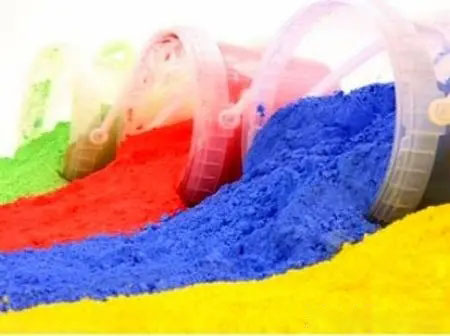1. What is an azo pigment?
Azo pigments are insoluble organic compounds containing azo groups in their molecular structure. They are bright in color and strong in coloring power, but they are often inferior in fastness. However, they are still widely used due to their convenient manufacturing and low price. This type of pigment is generally formed by diazotizing aromatic amines and heterocyclic aromatic amines, and then forming insoluble precipitates with acetarylamine and 2-naphthol. Azo pigments are the main type of organic pigments, and their output accounts for about organic About 60% of the total output of pigments, azo pigments have a wide chromatogram distribution, with colors such as yellow, orange, red, brown, and blue.
2. What are the commonly used azo pigments?
There are many varieties of azo pigments with different properties. According to their chemical structure, they can be divided into three categories: insoluble azo pigments, Azo lake pigment and Condensed azo pigments.
(1). Insoluble azo pigments
Azo pigments that are insoluble in water. Some hydroxy-containing compounds (without sulfonic acid or hydroxyl and other water-soluble groups), mainly o-hydroxynaphthamides, in addition to fused ring, heterocyclic o-hydroxy arylamines and a few acetyl groups Acetamides.They can be divided into monoazo and disazo pigments.
(2). azo lake pigment
The precursor of this type of pigment is a water-soluble dye with a sulfonic acid group and a carboxylic acid group in the molecule, and the water-insoluble pigment is formed by the action of the precipitating agent. The precipitating agents used are mainly inorganic acids, inorganic salts and carriers. The production difficulty of such pigments is the same as that of general monoazo pigments. The color spectrum is mainly yellow and red. Their light fastness, solvent resistance and migration resistance are general, and they are mainly used in printing inks.
(3). Condensed azo pigments
The molecular structure of these pigments looks like ordinary disazo pigments, but they are formed by the condensation of two monoazo pigments containing carboxylic acid groups through a dibasic aromatic amine. The production process of this kind of pigment is more complicated. The color spectrum is mainly yellow and red. Their light fastness, solvent resistance and migration resistance are very good, and they are mainly used for the coloring of plastics and synthetic fibers. Typical varieties are Gumei Deyellow 3G (C.I. Pigment Yellow 93).

